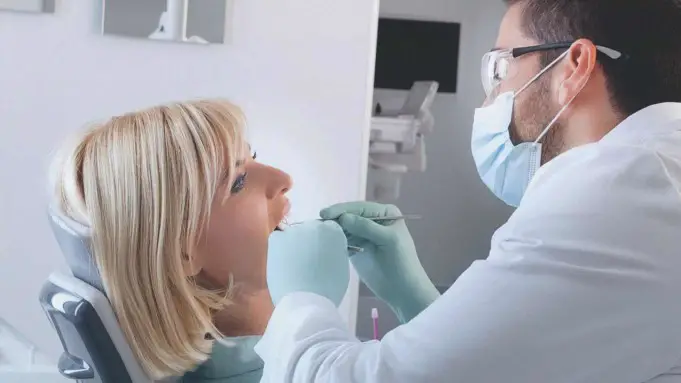Pregnancy often comes with lots of challenges such as pregnancy gingivitis and pregnancy tumors. This is possible because of the hormonal changes that accompany pregnancy.
Hormone level can change, and these changes can cause gingivitis in at least forty percent of pregnant women. Gingivitis is the inflammation of the gums. Apart from gingivitis, the hormonal change during pregnancy can equally cause tumors.
This is a large lump in the inflamed gum tissue. It is often present close to the upper gum line. The lump is usually red and can crust over and bleed. Apart from causing discomfort, it can make it extremely difficult for the patient to speak and eat.
Tumors can manifest any of the pregnancy. In most cases, it could be manifest during the second trimester. Pregnancy can escalate the progesterone level and that paves the way for certain bacteria to grow in the body.
One of such bacteria is the gingivitis causing bacteria. In addition to that, progesterone level makes the gum tissue more vulnerable for plague and can increase pregnant woman’s response to toxins that come from such a plague.
Symptoms
Gingivitis manifests within the second to the eight months of pregnancy. Different signs can show that the problem is manifesting and some of them include:
- Red looking gum
- Severe swelling
- Bleeding and so on
How to prevent gingivitis during pregnancy?
This is one of the problems associated with pregnancy. Women could prevent it from occurring. The best way to go about it is to ensure a good oral health habit during pregnancy.
You can brush your teeth regularly. It is good if you can brush your teeth two times daily. Furthermore, practice flossing it once a day and use antimicrobial mouth rinse while doing that.
If you were used for professional gum cleaning, always stick to it even in your pregnancy. It is better to get professionals undertake the cleaning for you. In addition to all these, there is the treatment option, which includes the use of antibiotics. If the matter gets worse, you can excise the affected tissue.
Tumors are not as widespread as gingivitis. Research has indicated that it can occur in about ten percent of pregnant women. Moreover, it is not as dangerous as the word tumor may suggest, and it does not possess and cancerous property.
Furthermore, the problem does not spread to other parts of the gum. Women who are suffering from pregnancy gingivitis are likely going to suffer from the tumor. Many women suffering from gingivitis do not suffer from pregnancy tumor.
Treatment
Pregnancy tumors can actually be treated. In most cases, it will disappear on its own after birth. The problem with it is that many people will not wait for childbirth before they opt for treatment, because it can make eating very difficult. When that becomes the case, the best thing to do is to remove it.
The removal process is not difficult. It is a local procedure and it often involves local anesthesia. Removal does not mean that it may not occur again. In most cases, the tumor can redevelop and it is always during pregnancy.
Sometimes the dentist may try to understand the underlying causes of the problem and treat it at the source. An example of the cause includes plague build-up and when that it is detected, it is often removed.
Just like in the case of gingivitis, a lot depends on the patient to prevent it. Because of that, good oral hygiene is always recommended to prevent pregnancy tumors from occurring.
Form the habit of brushing the teeth at least twice a day using fluoride toothpaste. Furthermore, you can rinse as well as use flossing daily, using your antimicrobial rinse, especially when you are pregnant.
Does it affect pregnancy?
The worry of many people that gum diseases can actually affect pregnancy. A few studies in the medical field done a few years back seemed to confirm that fear. There is a link between premature birth and gum disease. Such studies are available in the Journal of the American Dental Association.
Such studies revealed that gum diseases are four to seven times likely to cause premature birth. Such births can occur within or before the gestational thirty-seven weeks.
Furthermore, research has shown that mothers often deliver underweight babies than those with healthy gums. Research has further indicated that mothers suffering from periodontal disease can deliver prematurely within thirty-two weeks.
Moreover, mothers suffering from gingivitis can suffer from high blood pressure.
You can prevent pregnancy gingivitis from interfering with your pregnancy.
The best way to do that is to ensure that you maintain a very good oral health. If you do that, then it could not cause any problem with your pregnancy.
If you always suffer from gingivitis and tumor, it is important to schedule regular appointment with your dentist whenever you are pregnant. Inform your doctor in time, and he in turn will help you come out of the problem.
Even if before you become pregnant and you experience any kind of gum diseases like the following, you can treat them:
- Bleeding and painful gums
- Toothache
- Persistent bad breath
- Receding gums
- Growth in the mouth
- Loosening teeth
If you have symptoms of the above, it is recommended to see your dentist. Perhaps that can help curb the problem of pregnancy gingivitis and pregnancy tumor.
A healthy lifestyle is always the best way out of this problem. It is recommended that you take sufficient quantities of Vitamin C as well as Vitamin B12 in your food intake.
This is good because it can maintain a healthy oral cavities, as well as strong gum. Furthermore, it is advisable to stay away from sugary snacks.
Dentists have always recommended that you avoid toothpaste and teeth whitening kit. Most importantly, you should always be aware of any gum changes and address the problem promptly. If you attend regular check-ups, it is possible that you are going to avoid most of the problems.
Conclusion
Pregnancy gingivitis and pregnancy tumors are some of the challenges associated with pregnancy. If you discover this early, you can approach your dentist to deal with the problem to avert the problem associated with it.
A good oral habit is the best way to prevent it; this means that you can do a lot to prevent these pregnancy problems from manifesting.












